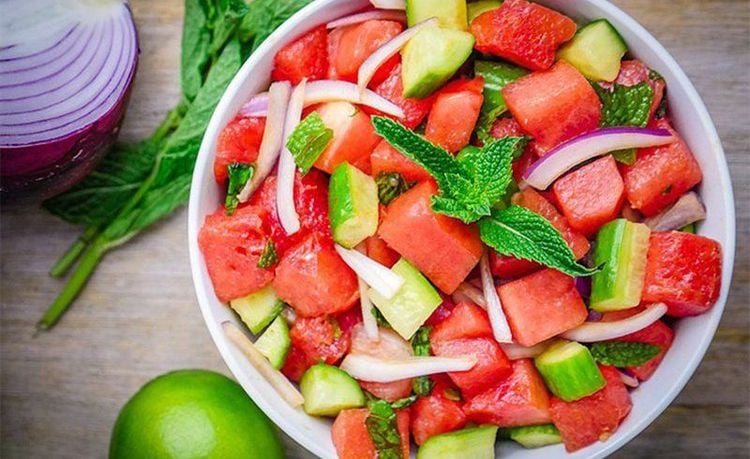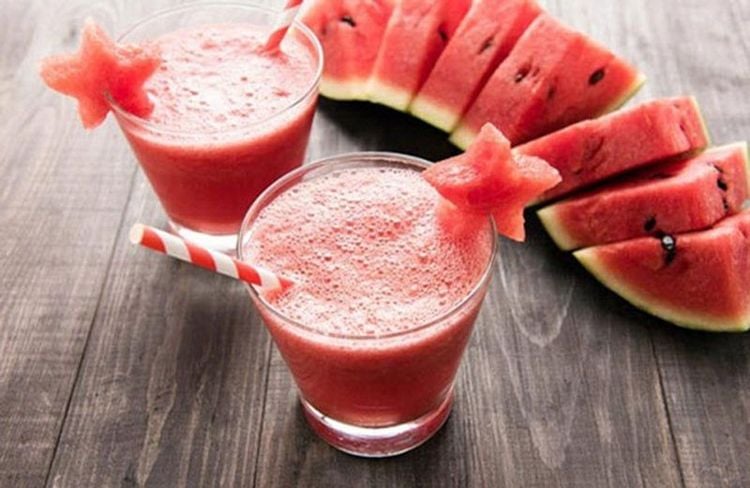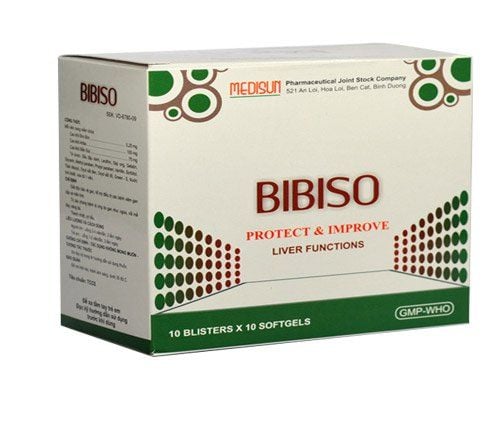1. Nutritional profile of Watermelon
Watermelon is a source of carbohydrates, vitamins, minerals, and beneficial plant compounds. Composed of about 91% water, it is an excellent fruit for hydration. A 152-gram serving of watermelon provides:
- Calories: 46
- Protein: 1 gram
- Fat: Less than 1 gram
- Carbs: 12 grams
- Fiber: Less than 1 gram
- Vitamin C: 14% of the Daily Value (DV)
- Copper: 7% DV
- Pantothenic Acid (Vitamin B5): 7% DV
- Provitamin A: 5% DV
Watermelon is also rich in antioxidants like lutein and lycopene, which protect the body against damage and disease. These antioxidants may support eye, brain, and heart health, and potentially reduce the risk of certain cancers.
Trắc nghiệm: Bạn có hiểu đúng về dấu hiệu mang thai sớm?
Các dấu hiệu mang thai sớm không phải chỉ mỗi trễ kinh mà còn có rất nhiều dấu hiệu khác như xuất huyết âm đạo, ngực căng tức,… Điểm xem bạn biết được bao nhiêu dấu hiệu mang thai sớm thông qua bài trắc nghiệm này nhé!
Some studies suggest that these specific antioxidants might lower the risk of premature birth and other pregnancy complications. However, more research is needed to confirm these findings.
2. Benefits of Watermelon for pregnant women
Is eating watermelon good for pregnant women? Watermelon has often been considered a sweet and refreshing treat with limited culinary and nutritional value. However, it is actually a versatile and highly nutritious fruit.
In Salads, watermelon adds crunch and vibrant color to dishes.In Smoothies and Sorbets, it serves as a naturally sweet and refreshing base. Watermelon also enhances the flavor of savory barbecue sauces.

If you are pregnant, the benefits are even more significant. Watermelon soothes heartburn and reduces swelling; its high water content (92%) and natural sugars can help reduce morning sickness and dehydration; and the minerals it contains may help prevent muscle cramps during the second trimester of pregnancy. According to research experts, watermelon contains more lycopene than tomatoes, an antioxidant that fights cancer and cardiovascular diseases, boosts the immune system's ability to fight infections, and naturally increases the skin's SPF. Here are some benefits of watermelon for women during pregnancy:
2.1. Watermelon may reduce the risk of preeclampsia
Watermelon is rich in lycopene, a compound found in tomatoes and other similarly colored fruits and vegetables.
Some studies conducted with watermelon have shown that consuming 4 mg of lycopene per day – or about 60% of the lycopene found in one cup (152 grams) of watermelon – can reduce the risk of preeclampsia by up to 50%.
Preeclampsia is a common pregnancy complication characterized by high blood pressure, swelling, and protein loss in urine. It can cause severe issues for both the mother and the baby and is a leading cause of premature birth.
Based on research that found lycopene supplementation could reduce the risk of preeclampsia, watermelon, which is rich in lycopene, is often promoted as a way to protect women from developing preeclampsia during pregnancy. However, more recent studies have found no connection between watermelon consumption and the risk of preeclampsia.
These studies used high-dose lycopene supplements to provide lycopene, not watermelon. Therefore, there is currently no research linking the consumption of watermelon during pregnancy to a reduced risk of preeclampsia.
2.2. Watermelon may reduce the risk of pregnancy complications or side effects
During pregnancy, a woman’s daily fluid needs significantly increase to support optimal blood circulation, as well as the higher amniotic fluid and overall blood volume. At the same time, the digestion process tends to slow down. So, should pregnant women eat watermelon?
This combination of changes can increase the risk of dehydration in pregnant women. Conversely, this can increase the risk of constipation or hemorrhoids during pregnancy.
Suboptimal hydration during pregnancy may also be associated with poor fetal development, as well as a higher risk of preterm birth and birth defects.
The abundant water content of watermelon can help pregnant women better meet their increased fluid needs, which may reduce the risk of constipation, hemorrhoids, and pregnancy complications.
However, this can apply to all fruits and vegetables rich in water, including tomatoes, cucumbers, strawberries, zucchini, and even broccoli. Therefore, while technically correct, this benefit is not exclusive to watermelon.
2.3. Watermelon helps alleviate heartburn symptoms
Pregnant women often experience digestive issues such as heartburn. Watermelon helps ease these problems by soothing the esophagus and stomach, providing immediate relief from heartburn.

2.4. Reduces swelling
Mild swelling in the hands and feet, or edema, is common during pregnancy. The high water content in watermelon helps reduce congestion in the veins and muscles, thus treating edema.
2.5. Reduces morning sickness
Drinking a glass of fresh watermelon juice in the early morning is a great idea during pregnancy. Watermelon provides a light and refreshing experience throughout the day. Its energizing and nutritional properties also help alleviate morning sickness.
2.6. Reduces muscle cramps
A pregnant woman's body undergoes many changes. Increasing weight and hormonal fluctuations can lead to muscle and bone pain. Including watermelon in any form helps the body cope with and reduce muscle cramps.
2.7. Prevents pigmentation
Pigmentation is a common skin issue during pregnancy, which can take away some of the joy of pregnancy. Watermelon plays an important role in preventing skin pigmentation issues. Watermelon promotes easy digestion and keeps bowel movements smooth, which affects the texture of the skin, making it glow and beautiful.
2.8. Diuretic and Detoxifying Effects
Watermelon has diuretic properties. It helps flush harmful toxins out of the body. Additionally, watermelon stimulates kidney function, detoxifies the liver, and reduces uric acid levels in the blood.

3. Safety concerns when consuming watermelon during pregnancy
Is it safe for pregnant women to eat watermelon? Eating watermelon during pregnancy is generally considered quite safe for pregnant women. However, this fruit is relatively high in carbs and low in fiber, a combination that can cause blood sugar spikes. Therefore, women with pre-existing diabetes or those who develop high blood sugar during pregnancy—known as gestational diabetes mellitus—may want to avoid consuming large portions of watermelon.
As with all fruits, watermelon should be thoroughly washed before being sliced and eaten or refrigerated immediately. To minimize the risk of food poisoning, pregnant women should also avoid leaving watermelon at room temperature for more than 2 hours.
Watermelon is a nutrient-dense fruit with many beneficial compounds for health. Regular consumption during pregnancy can help reduce the risk of developing preeclampsia, constipation, or hemorrhoids. Its high water content can also help reduce the risk of poor fetal development, premature birth, and birth defects. However, the evidence supporting some of these benefits is weak, and in many cases, they may apply to all fruits—not just watermelon. While it is often promoted as offering a long list of additional benefits during pregnancy, none of these benefits are currently scientifically proven. This suggests that watermelon remains a nutrient-rich fruit and a great way to add variety to a pregnant woman’s diet.
With the information above, you now know the benefits and drawbacks of eating watermelon during pregnancy. For any concerns, a specialist doctor will provide advice to ensure you have a healthy pregnancy.
To arrange an appointment, please call … or make your reservation directly HERE. You may also download the MyVinmec app to schedule appointments faster and manage your reservations more conveniently.













